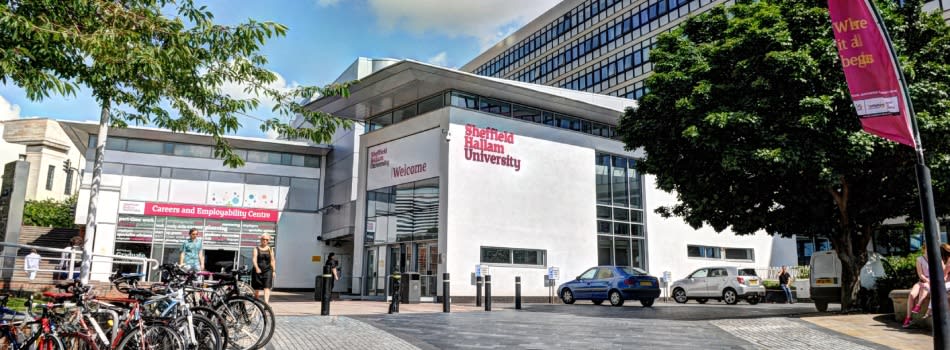The Industry and Innovation Research Institute (I2Ri) draws on talents, expertise and facilities across Sheffield Hallam University. The vision is to be the leading provider of applied research excellence delivering materials, computing, science and engineering innovations meeting the development needs of industry.
This project is part of a Graduate Teaching Assistants scheme, in which the successful applicant will undertake certain teaching duties associated with the student experience, in addition to working towards a PhD qualification. They contribute to up to 180 hours of support for research or teaching related activity per academic year. This activity forms part of the scholarship award and there is no additional payment.
PhD Research Topic
Decarbonisation of transport through electrification is crucial to NetZero targets. While the cost of batteries continues to decline, the number of Electric Vehicles (EV) and charging stations are predicted to grow exponentially by 2030. By that time, the cost of batteries is also expected to fall many-fold relative to today. Thus, the key drivers of EV adoption (affordability, driving range and access to charging stations) are all linked to battery properties. This, combined with the need to replace the vehicle’s batteries upon 20%-30% degradation will quickly result in a large number of second-life batteries (SLBs) which can be repurposed. Despite the emerging opportunities opened by SLBs as energy resources, key challenges include:
- How to optimally utilise the SLBs’ remaining useful life for Vehicle-to-Grid/Grid-to-Vehicle services without undermining their lifespan;
- How to minimise the effects of uncertainties brought by high utilisation of SLBs and renewable energy at networked charging stations and energy hubs
The aim of this project is to develop optimal scheduling strategies which leverages the flexibility of EVs and SLBs to jointly minimise EV charging cost and emission at charging station/energy hubs . The project objectives are:
- Predict future operational parameters (EV load, driving pattern, renewable generation, etc) at each charging stations and energy hubs.
- Develop a decentralised model to optimise the scheduling of SLBs alongside other stationary storage systems, while accounting for local and global objectives
- Exploit remaining useful life of SLBs to jointly maximise renewable utilisation and energy balance index
- Develop a model to manage the uncertainties (risks) inherent in the system including those arising from SLBs and renewable generation.
- Develop operating models that explore the flexibility of EVs and SLBs to reduce the levelised cost of charging.
Eligibility
Applicants should hold a 1st or 2:1 Honours degree in Electrical Engineering or a related discipline with a solid background in mathematics. A Master’s degree in a related area is desirable. We are offering this as a full-time PhD scholarship. We welcome applications from all candidates irrespective of age, pregnancy and maternity, disability, gender, gender identity, sexual orientation, race, religion or belief, or marital or civil partnership status. We particularly invite candidates from Black, Asian and minority ethnic British students.
Information for International applicants
We have a mandatory English language requirement of IELTS 7 with a score of at least 6.5 in all test areas, or equivalent language qualification, for all applicants to whom English is not their first language. This qualification should have been taken within the last two years.
Further information about equivalent English language qualifications can be found here
Generally, the shortfall between the Home and International fee, currently around £10,300 per year, will need to be covered by the student for the duration of the studentship. As part of the Sheffield Hallam PhD scholarship programme, additional funding may be made available to assist International students with this fee gap. This additional funding is limited, though, and will only be offered to exceptional International applicants. Allocation of this additional funding will be based on information obtained through the standard GTA recruitment process, and no additional application will be required.
How to apply
We strongly recommend you contact a member of the supervisory team before making an application.
To apply for this GTA scholarship, please use our online application form.
You must ensure that you upload:
1. A letter of intent (1 page maximum) detailing why you are interested in the project and how your experience and background can make you the best candidate for this project. Please also identify potential areas you can contribute to within the teaching departments associated with this project. (Please upload this in place of a proposal)
2. Two letters of reference, one must be from an academic and both must be dated within the last 2 years (if you are not able to collate these by the application deadline please include referee details and these can follow afterwards).
3. Copy of your highest degree certificate (if available).
4. Non-UK applicants must submit IELTs results (or equivalent) taken in the last two years and a copy of their passport.
The closing date for all applications is 11:59pm (UK time) 12 May 2023. Ensure that applications are submitted before the deadline as late applications will not be accepted.
Interviews are scheduled for: 6 June 2023 onwards
Further information about our research degrees can be found here
An Overview of the GTA scheme can be found here
The Conditions of the Award can be found here

 Continue with Facebook
Continue with Facebook




